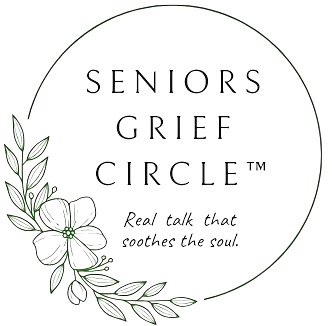How to deal with the shock of losing your spouse or parent.
Losing a spouse or parent is an indescribable pain. It leaves you grappling with the void that their absence creates, and it alters your family dynamics forever. In the wake of such profound loss, it’s crucial to acknowledge the emotional whirlwind and see ways to begin navigating this challenging journey, maybe like no other you’ve ever faced in your life before.
How to Face the Initial Shock
The first wave of grief often hits like an unexpected storm, leaving you disoriented and overwhelmed. It’s okay to feel numb, angry, overwhelmed, lost or even confused. Or maybe you’re swept away with deep sadness every waking moment of the day. Allow yourself to experience these emotions without judgment. Share your initial feelings with trusted friends or a support group who can offer empathy and understanding during this critical period. People do want to help – so take them up on their offer to listen.
Practical Strategies for Coping
- Create a Support System. Surround yourself with compassionate friends and family who can provide emotional support. Grieving is not a solitary journey, and sharing memories or simply having someone to listen can be immensely healing. Not everyone has a strong support system, and this is where the Seniors’ Grief Circle can help you. Become a member and join our incredibly warm and supportive community to begin processing your loss, gain access to community resources and build a caring network of friends.
- Take Small Steps. Grieving is a process that unfolds gradually. Focus on the present moment and take small, manageable steps each day. It could be as simple as going for a short walk, enjoying some comfort food, getting more sleep or spending time with loved ones – or just taking more time to be alone.
- Seek Professional Help. Grieving is a complex journey, and each person will grieve the loss of a loved one differently. Seeking the guidance of a grief coach or therapist can provide valuable tools for coping, including access to a variety of community resources. Professional support through the Seniors Grief Circle offers a safe space to express your emotions and navigate the challenges of grief. Become a member today.
- Honor their Memory. Find meaningful ways to commemorate your loved one. Create a memorial, start a tribute project, organize a prayer service or participate in activities that celebrate their life. These acts of remembrance can help shift the focus from the pain of loss to the beauty of the memories shared.
- Establish Rituals. Rituals can provide a sense of structure and comfort during turbulent times. Whether it’s lighting a candle, maintaining a journal, or creating a special space for reflection, establishing rituals can be a soothing anchor.
What Will the Healing Process Look Like?
Grieving is a unique journey for everyone, and there is no right or wrong way to cope. Be patient with yourself, allowing the healing process to unfold organically for you. Remember, healing is not about forgetting; it’s about finding a way to carry the love and memories with you as you move forward.
Losing a spouse or a parent can seem like the most catastrophic experience in the world. Navigating the complexity of emotions requires time, patience and above all, self-love and compassion. By acknowledging the initial shock, creating a supportive network and embracing practical strategies for coping, you can gradually find a path toward healing.
Grief may reshape your world, but with self-care and understanding, you can learn to navigate it with resilience and grace.
Need a little help navigating your grief journey? Become a member of the Seniors Grief Circle. Join today, we’re here to listen and help you along the way.


Hi, this is a comment.
To get started with moderating, editing, and deleting comments, please visit the Comments screen in the dashboard.
Commenter avatars come from Gravatar.